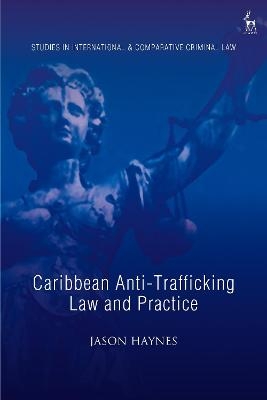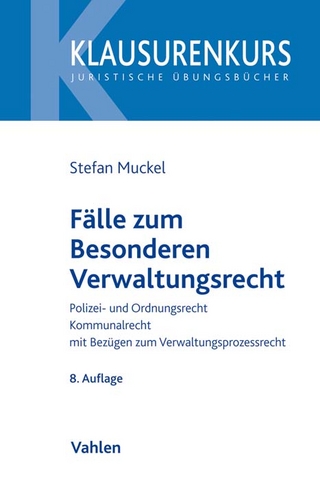
Caribbean Anti-Trafficking Law and Practice
Hart Publishing (Verlag)
978-1-5099-1556-9 (ISBN)
Given the importance of the issue of human trafficking and its inescapable impact on victims, families, communities, nations, regions and the international community as a whole, this monograph will serve as an important resource for policy makers, scholars, students and practitioners actively working in this increasingly dynamic area of law.
Jason Haynes is Senior Legal Officer, British High Commission, Bridgetown, Barbados and former Lecturer in Law, University of the West Indies, Mona Campus, Jamaica.
1. Introduction
I. Overview
II. Locating the ‘Commonwealth Caribbean’
III. Situational Overview
IV. Further Afield
V. Summary
VI. Structure of the Monograph
2. Theoretical Perspectives on Human Trafficking
Introduction
I. Economic Theory
II. Criminology Theories
III. Feminist Theories
IV. Brief Reflections
V. Analytic Eclecticism
VI. Methodology
Conclusion
3. International Dimensions of Anti-Trafficking Law and Practice
Introduction
I. The Criminal Justice Approach
II. The Human Rights Approach
Conclusion
4. The European Approach to Human Trafficking
Introduction
I. Situational Overview
II. Legal Frameworks
III. Political and Institutional Commitment
IV. Public Awareness, Stakeholder Collaboration and Capacity Building
V. Criminalisation and Sanctioning
VI. Investigation, Victim Identification and Referral
VII. A Victim-Centred Approach
VIII. Protection of Trafficked Victims
IX. Material, Medical and Psychological Assistance and Accommodation
X. Protection and Support for Child Victims
XI. Regularisation of Immigration Status, Repatriation and Reintegration
XII. Compensation
XIII. Hegemonic Assumptions
Conclusion
5. Anti-Trafficking Law and Practice in England and Wales
Introduction
I. Criminalising Trafficking in Persons
II. Investigating Trafficking in Persons
III. Identifying and Referring Victims of Trafficking
IV. Discretionary Leave to Remain
V. Support and Assistance of Trafficked Victims
VI. Child Victims of Trafficking
VII. Criminal Proceedings
VIII. Compensating Victims of Trafficking for Harm Suffered
IX. The Non-Punishment of Victims of Trafficking
X. Institutional Commitment
XI. Confiscation/Forfeiture of Assets
XII. Prevention and Risk Orders
XIII. Transparency in Supply Chains
Conclusion
6. Normative Aspects of Caribbean Anti-Trafficking Law and Practice
Introduction
I. Domestic Legal Framework
II. Normative Considerations
Conclusion
7. Institutional Aspects of Caribbean Anti-Trafficking Law and Practice
Introduction
I. Human Trafficking on the National/Regional Agenda
II. Capacity Building
III. Stakeholder Collaboration
IV. Victim Identification and Referral
V. Court Proceedings
Conclusion
8. Individual Aspects of Caribbean Anti-Trafficking Law and Practice
Introduction
I. Primacy of Victims’ Rights
II. Meeting the Basic Needs of Trafficked Victims
III. Medical and Psychological Assistance
IV. The Special Position of Child Victims
V. Accommodation
VI. Privacy and Confidentiality
VII. Information, Documentation and Interpretation/Translation
VIII. Regularisation of Victims’ Immigration Status
IX. Repatriation
X. Reintegration
Conclusion
9. Conclusion: The Way Forward
Introduction
I. General Findings
II. Reforming Anti-Trafficking Law and Practice
III. Summary
| Erscheinungsdatum | 11.06.2019 |
|---|---|
| Reihe/Serie | Studies in International and Comparative Criminal Law |
| Verlagsort | Oxford |
| Sprache | englisch |
| Maße | 156 x 234 mm |
| Gewicht | 844 g |
| Themenwelt | Recht / Steuern ► Allgemeines / Lexika |
| Recht / Steuern ► EU / Internationales Recht | |
| Recht / Steuern ► Öffentliches Recht ► Besonderes Verwaltungsrecht | |
| Recht / Steuern ► Öffentliches Recht ► Verfassungsrecht | |
| Recht / Steuern ► Öffentliches Recht ► Völkerrecht | |
| ISBN-10 | 1-5099-1556-7 / 1509915567 |
| ISBN-13 | 978-1-5099-1556-9 / 9781509915569 |
| Zustand | Neuware |
| Haben Sie eine Frage zum Produkt? |
aus dem Bereich


